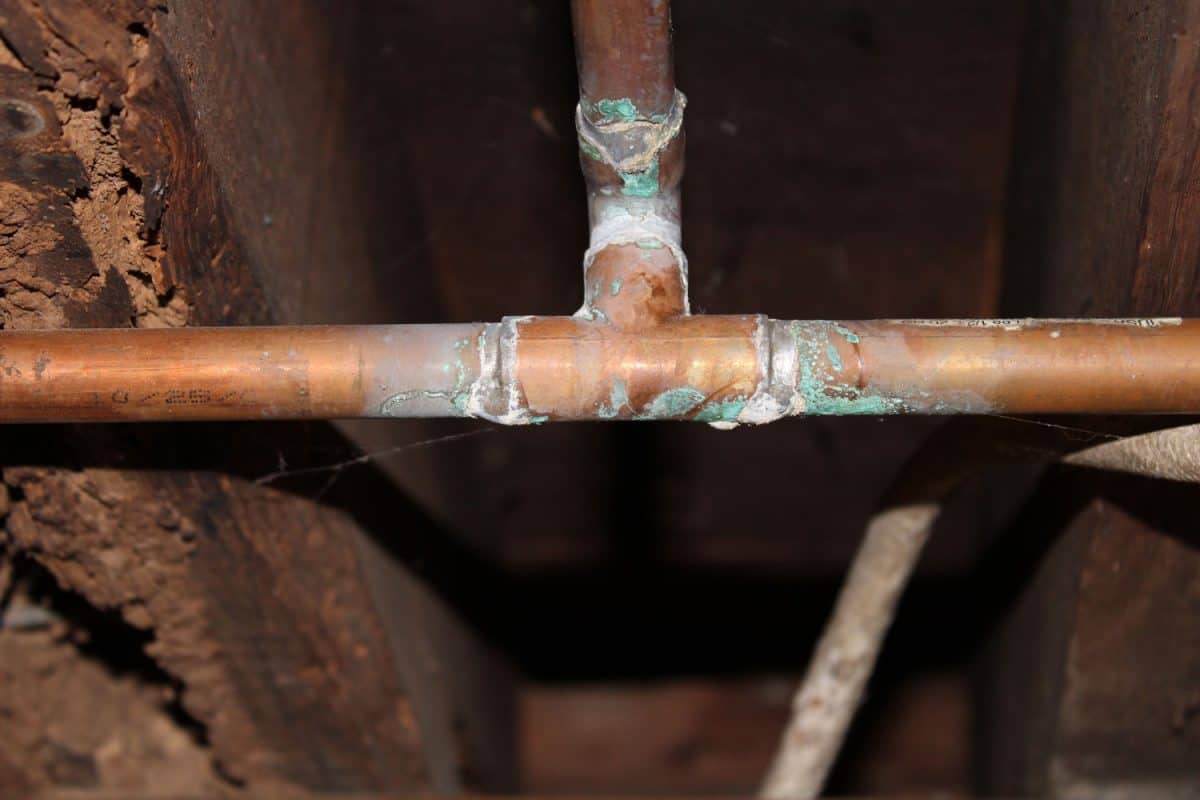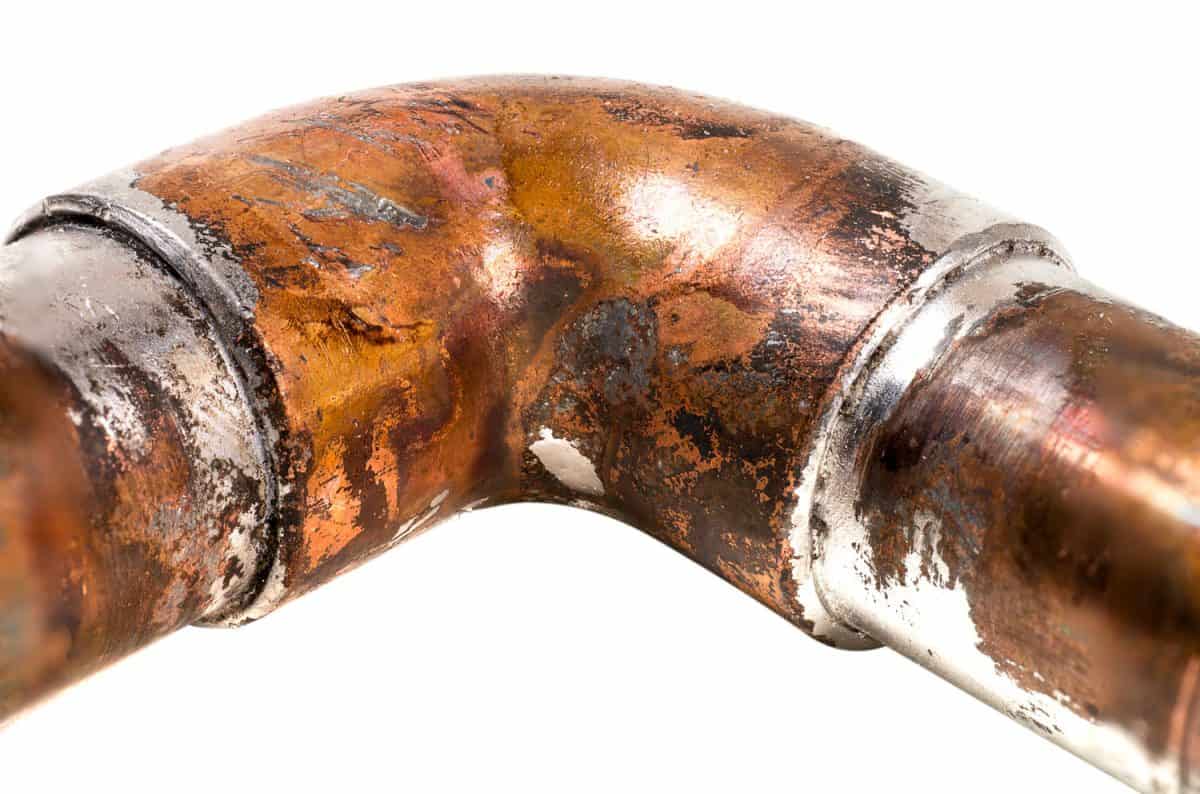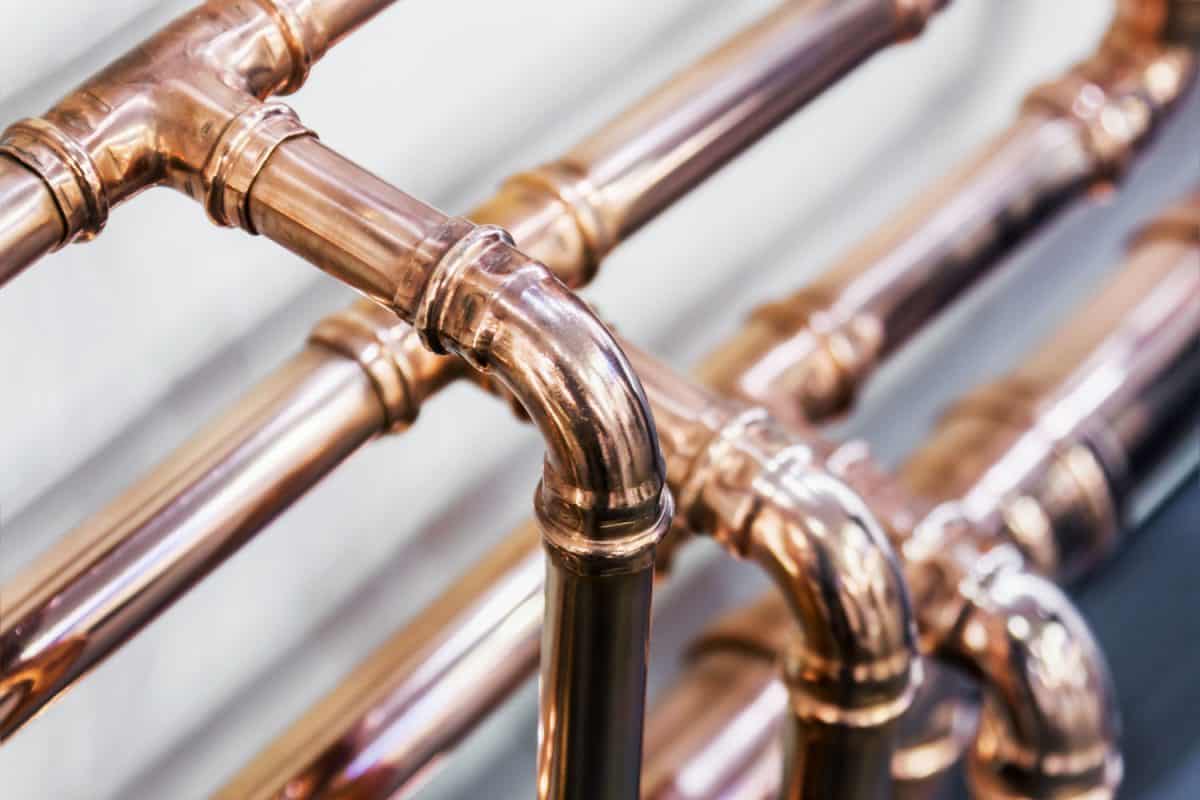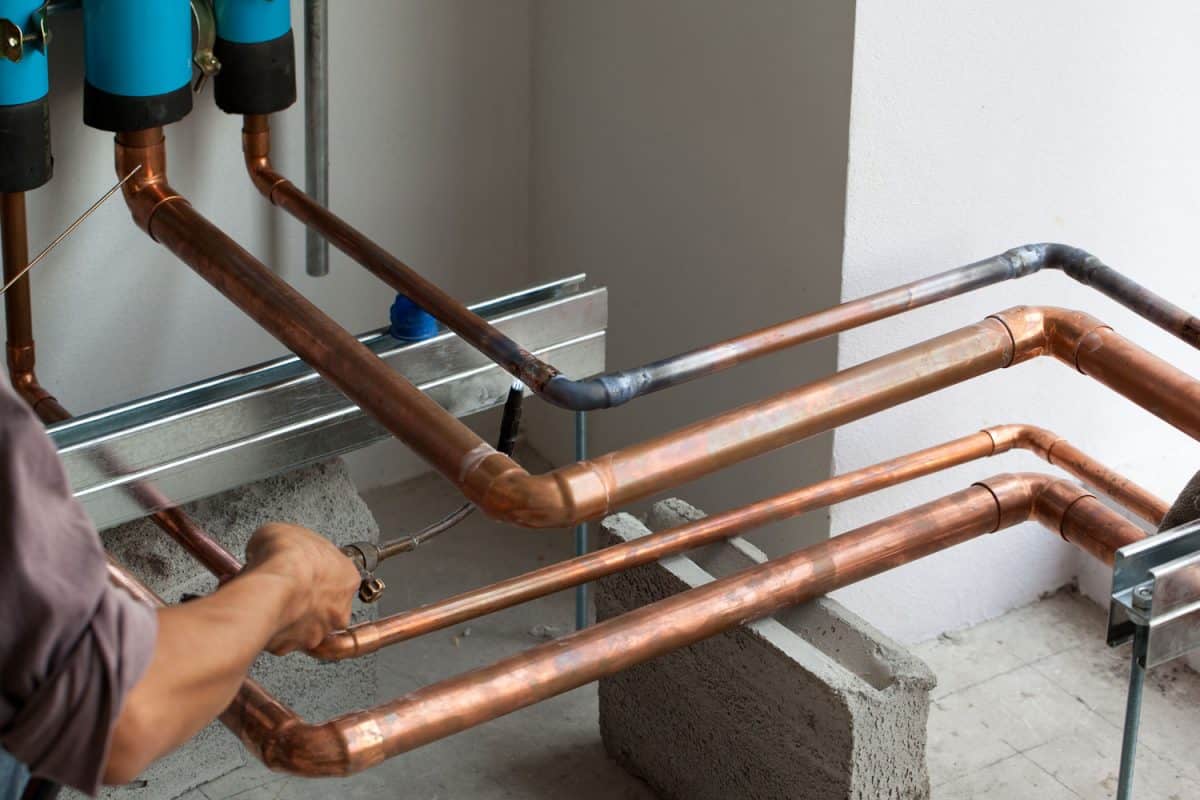You may have read somewhere before that copper doesn't rust. So, how come there are rusty and bluish-green stains on some copper pipes right where the leaks are? Are those signs of copper pipe corrosion, and what can be done to prevent them? We've done the research regarding this, and we'll share what we found out with you.
Copper pipes corrode when they react with oxygen, moisture, and other elements in their environment. Corrosion could lead to the deterioration of the pipes and failure of your plumbing system. To prevent this, you can clean your pipes and cover them with a protective lining to avoid contact with harmful matter. You should also check your water's pH, oxygen levels, and velocity.
Continue reading to know more about the causes of copper pipe corrosion and the different ways to prevent this from happening. This article will also answer how long copper pipes are expected to last. Let's get started!
![Old rusty water pipes and sewerage of a residential building, Do Copper Pipes Corrode Or Rust [And How To Prevent It]](https://uooz.com/wp-content/uploads/2022/01/Do-Copper-Pipes-Corrode-Or-Rust-And-How-To-Prevent-It.png)
What causes corrosion in copper pipes -and how to stop it?

It is true that copper is among those metals that do not rust. This is due to the fact that it contains a very small amount to no traces of iron at all, which is the primary element that reacts to oxygen and water that causes rusting.
However, copper can still show signs of reaction to oxygen and moisture like the greenish sheen on its surface. According to experts, this is actually important as it protects the copper pipes from corroding further.
We want to prevent corrosion because it will lead to the deterioration of the copper pipes, which will cause the failure of your plumbing system. There will be pitting on the copper surface, and eventually, pinhole leaks will come about.
These leaks start out small and might not be easily detected. As such, mold and mildew might build up in the damp areas, and there's rotting or damage on the surface before you know it. As the copper weakens due to constant pitting, the pipe will eventually break, and this can cause heavy damage to your home and require costly plumbing repairs.
Causes of Corrosion in Home Piping Systems
Corrosion in copper pipes can be caused by various factors. Here are just some of them:
- Water's pH level: Low pH means that the water is acidic, while high pH indicates alkaline water. Both states can cause corrosion.
- Water's high velocity: This can cause hydraulic wear on the pipes which can lead to the eventual decline of the material.
- High level of dissolved oxygen: This will accelerate corrosion in your copper pipes.
- Improper installation of the plumbing system: It could be that excessive acid flux was used during soldering, or the ends of the copper pipes weren't deburred properly.
- Presence of sand, sediments, and grit: These can cause your pipes to become worn out prematurely.
- High levels of Total Dissolved Solids: This makes water better able to conduct electrons, and as they flow through the affected areas, they promote further corrosion.
- Improper electrical grounding: This causes electro-chemical reactions that can hasten the deterioration of the pipes.
- Bacteria: An example is the sulfate-reducing bacteria which can cause serious damage to your plumbing fixtures.
These are just some of the common causes of copper corrosion. In some cases, you won't even be able to fully determine what's causing the issue. But there are always different approaches to prevent corroding of your water pipes.
Ways to prevent pipe corrosion

Here are some of the recommended measures so you can avoid copper pipe corrosion:
Clean your pipes
The presence of sediments and other unwanted particles cause the pipes to wear out prematurely, whether inside or outside the material. Sediments can also encourage bacteria growth, which will further speed up the deterioration of your plumbing fixtures.
Remove stagnant water from the pipes. There are also chemical water treatments that you can get to have your pipes cleaned.
Check your water
The healthy pH level of water is between 6.5 and 8.5. If you test your water and find that the pH level is below or beyond this, you can get a filter to help in neutralizing the pH level.
Check out this link to find this pH tester on Amazon.
Experts also advise that you monitor your water's oxygen level and its velocity. These factors can induce corrosion in your copper pipes.
Protect your pipes
Yes, your pipes need protection too. You can put insulation sleeves and protective linings along the entire length of the pipe to prevent contact with potentially harmful substances. You can also use sealants, especially along the pipe joints, to keep moisture and bacteria from settling in their crevices.
Click this link to find this corrosion protection tape on Amazon.
Keep your plumbing stable
Constant movement can also cause copper pipes to become worn out. Make sure that your pipes aren't jiggling or bouncing whenever they are in use.
You can help stabilize your pipes by putting straps, clamps, and U-bolts where needed. These will restrain the copper pipes and reduce vibrations when you open your water lines.
You can also seek professional assistance to properly treat your water pipe corrosion. This will help ensure that your plumbing is in great working condition and your pipes will be able to serve you longer.
How long should copper pipes last?

The plumbing in your home is a major investment. You have to know how long the materials are supposed to last so you can decide if they are worth your expenses. This will also help you prepare for possible replacement when their expected lifespan is almost up.
Copper has been a very popular choice for home plumbing for decades. Part of the reason for this is its durability. Copper can last for 70 to 80 years, so chances are you won't need to replace your pipes in this lifetime. Even if copper costs more than other pipes, you get your money's worth in the long run.
There are different types of copper pipes, and the type you use for your plumbing will also impact its lifespan.
- M-type copper pipes, being the thinnest, are also the weakest when it comes to withstanding corrosion. These are expected to last between 20 and 50 years only.
- L-type is somewhere in between the M and K types. It is thick, durable, and can endure acidic water. It has a lifespan of 50 to 100 years.
- K-type is the thickest of them all and is commonly used for commercial purposes. It can stand up to high water pressure and can last more than 100 years.
But of course, when your copper pipes start showing signs of corrosion and deterioration due to the reasons we've stated earlier, you would need to have them replaced to avoid further problems with your plumbing. That's why it's a good idea to give your copper pipes the protection they need to last longer.
Final Thoughts

Don't be complacent upon knowing that copper pipes do not rust. They can still react adversely to different factors in their environment, which could lead to corrosion and deterioration of their material. Give your pipes added protection by making sure that they are clean, putting a protective lining over their surface, and checking your water.
If you want to read more about copper pipes, you may visit the following links:
How To Keep Copper Pipes Shiny? [Plus Natural Methods & Oxidation Prevention]


